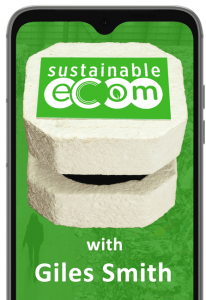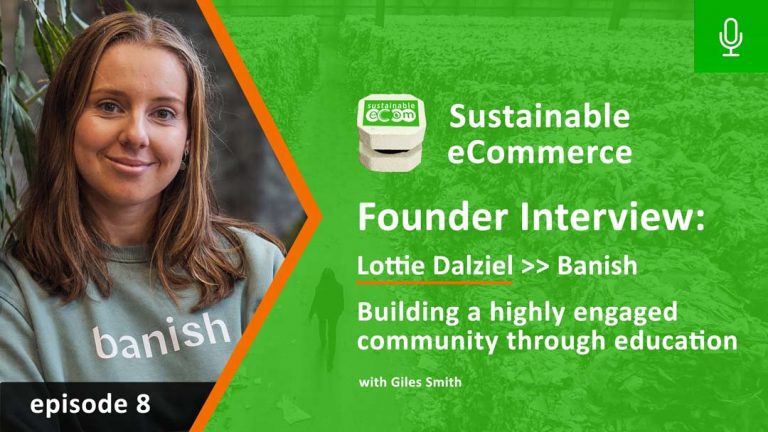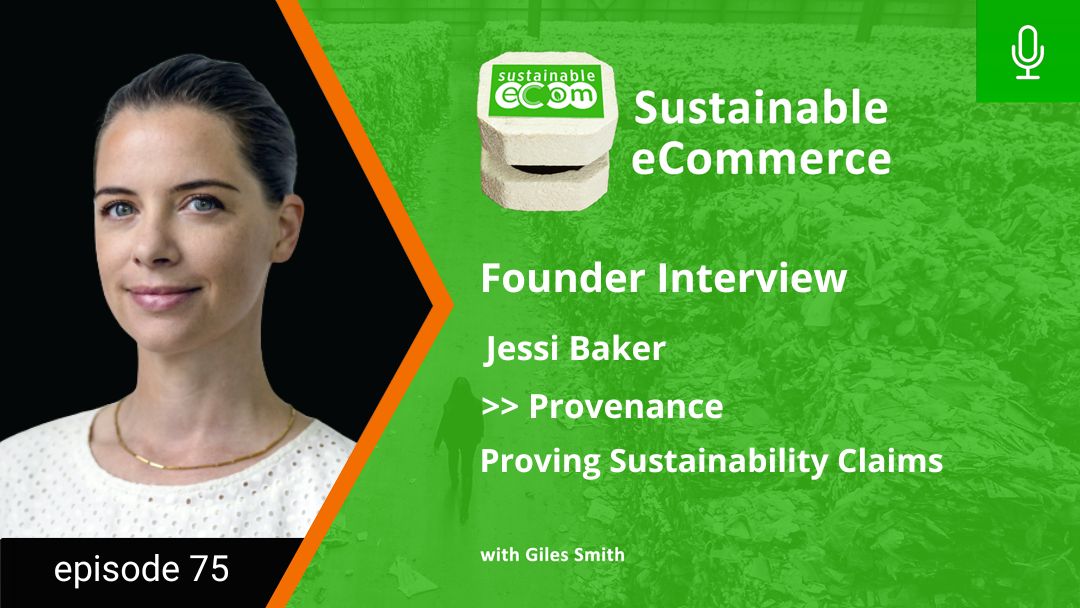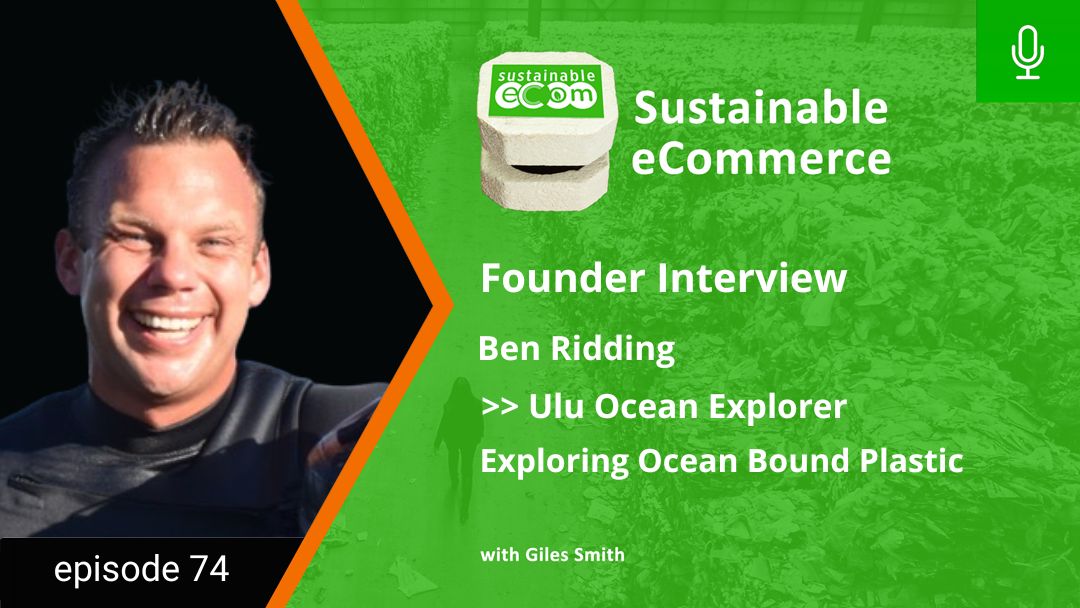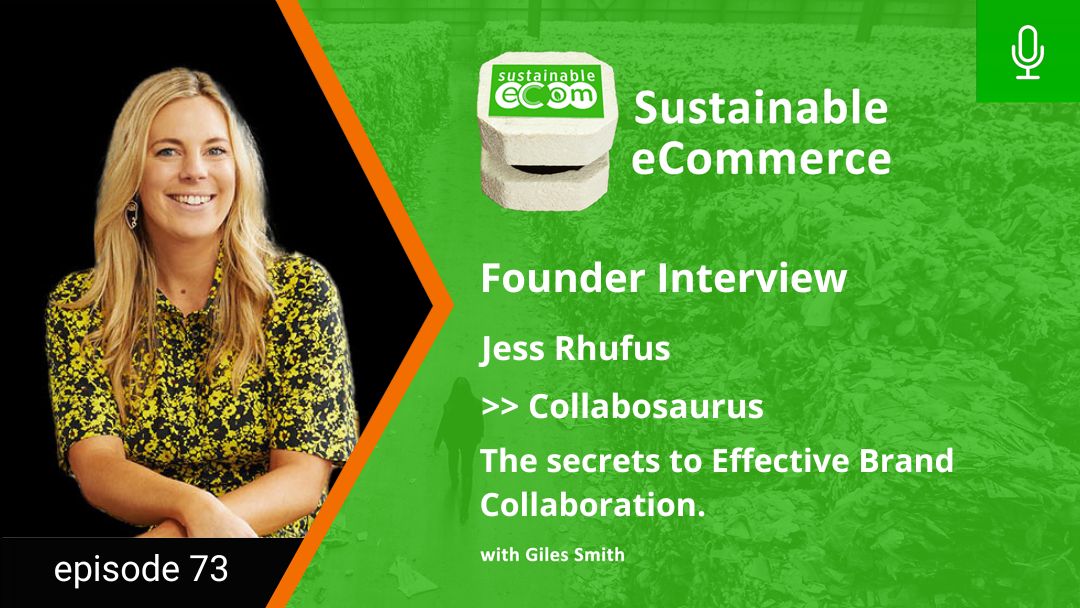Today I'm joined by Lottie Dalziel, founder of Banish, one of Australia's fastest growing sustainable product marketplaces. We explore how their focus on education has made Banish a powerhouse of customer acquisition and how brand engagement has led to its members literally queuing up to help them sort through piles of rubbish!
Giles Smith: Maybe we could start by having you tell us a little bit about yourself and about the Banish brand. What’s the origin story?
Lottie Dalziel: Just over four years ago now, I had a long list of New Year’s resolutions. I was going to kind of cut my buddy weight in half and I was going to become a morning person and do all of these different things. One of those resolutions was to start doing better when it came to the planet. But when it came down to doing better and actually taking those steps to a slightly more sustainable lifestyle, it was really difficult!
It was confusing. It was overwhelming. I didn't really even know where to start. One of the first things that I tried to do was switch out my plastic straws that I was using in my smoothies every morning. I just typed into Google “what is the most sustainable straw”. What you would think would be a very simple question, but there was no simple answer.
There wasn't really any information out there and I thought ‘this is really weird! If we want people to make a change and we want people to live more sustainably, it needs to be so easy that there's not really any reason not to’.
So eventually I spent hours and hours researching and eventually decided on choosing a stainless steel straw. I went online and I purchased five straws from what I felt was a sustainable store. But then they arrived a couple of days later, individually wrapped in plastic! I felt like I’d been fooled and wasted my time.
I started kind of talking to friends about it and telling them what had happened and they felt the exact same. So rather than sitting down and crying, I saw an opportunity to educate people using my journalism background. But then also, to connect people with amazing sustainable brands who were out there doing the right thing.
I thought, why don't we make a marketplace where people can learn and they can be educated, but then also that they can shop from a trusted source. People who have done the research, who've done the vetting who know that these are actually sustainable products and then people can have a great experience at Banish.
So that's how I got into it. I had the idea and then two weeks later, jumped in and set the site live. Four years later we've got Banish, with about 650 products now from over 60 Australian businesses.
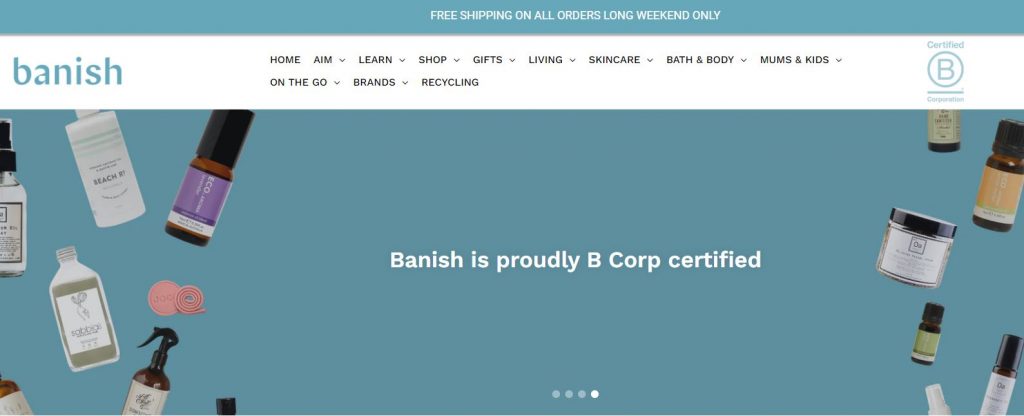
Giles Smith: How do you go about actually selecting the brands and the products, and maintain the banish promise?
Lottie Dalziel: So, we do have a very stringent and strict onboarding process when we're looking at brands and when they're applying to be a part of the site. We've got lots of requirements, including detailed expectations about how everything is packaged.
We also have a list called the ‘Banish sin bin’, which is a list of different ingredients that we will not stock on the website. For example, no products can have things like Palm oil in them. And then we also look into kind of where the products are made, who makes them, what are they packaged in. If we do have products on the website that are packaged in plastic, they're packaged in recycled plastic bottles rather than Virgin plastic bottles.
We definitely have a standard that we have to uphold, but we also work with all the providers to establish what is and isn’t acceptable to send us.
Giles Smith: You’re building a marketplace, which requires you to attract both vendors and buyers. What has been your most successful approach to attracting consumers and building awareness for the banish brand?
Lottie Dalziel: The education side of things has been really key to us. It's really set us apart from other marketplaces because we aren't just here to sell. We're here to teach people. Most of our customers start with us when they’re just dipping their toes in and making small, sustainable steps. And we want to give them a safe platform so that they can learn. We want to be really accepting of everybody because that's something that I found when personally I was entering the space is there was so much negativity, and there was so much telling people what they were doing wrong. But there wasn't enough about showing them how to do right. So that's been a really cool thing for us.
Lottie Dalziel: Then I think probably another game changer for us in terms of giving back to our community was the launch of our recycling program. I wanted to give our community something tangible. So we decided to launch the banish recycling program, called BRAD – the Banish Recycling And Disposal program.
The whole aim is to keep those hard-to-recycle items from going to the wrong pit. About 95% of all household products cannot be recycled. There are so many things that still can’t be recycled, like blister packs & beauty products. There are things that no matter how much you try and reduce your waste, you've still got them there at the end of the day. So I thought, why not incentivize our community with the service so that they could send back their hard-to-recycle items, and then we recycle them onshore in Australia, and provide our customers with a $15 discount to spend in-store.
So initially, it was meant to be for our customers as a way to give back to them. But the way that the program has taken off, it's now definitely an acquisition tool for us because we’re gaining a lot of new customers through the program.
Giles Smith: You must have mountains of stuff coming to you now. What do you actually do with it all and how do you ensure that it gets properly recycled?
Lottie Dalziel: It's been a very big journey in this respect because the program has grown so quickly. Now that we have grown though it is easier to work with because the scale makes it easier to talk to recycling centres. We do a lot of our recycling with Terracycle onshore in Australia, which has been a major part of our process.
Giles Smith: For those who don’t know, can you tell us about TerraCycle, what they do and why they're such an amazing organization?
Lottie Dalziel: So Terracycle is a US company that have an Australian branch. They provide a solution for hard to recycle items, like beauty products. They actually separate the items into each of the different materials. For example a skin care bottle – it has a pump, applicator, and lots of different types of plastic, it might have a metal spring and so on. So they actually have to pull it apart and then it's either melted down and then made into different products. Or otherwise converted into waste if it really can’t be recycled.

Giles Smith: You talked earlier about how difficult it is for consumers to make informed decisions about the products they get. From your perspective as a retailer, what do you think that brands typically could do better?
Lottie Dalziel: Yeah. It’s education. It's about talking to the customer and being transparent with them and telling them exactly what's going on and what you're doing about it. For example, many brands are saying their products are biodegradable, but what does that mean? How long will it take for that product to biodegrade? Can it go into your home compost bin, or does it need to go to a commercial facility?
If the product is made from recycled materials, can they then go into the recycling bin or do they need to go to a specialized facility? So I would really love to see brands talking to their customers about their own sustainability journey and providing more education about how to handle that product at end of life.
It's also important for brands to communicate their own journey, because sustainability is a journey, not a destination.
Giles Smith: Yeah, I love that. I talked about sustainable e-commerce being a goal-based journey rather back in Episode 1. Whereabouts in the Banish customer relationship do you start communicating your journey?
Lottie Dalziel: Yes, we have different kinds of email sequences, and we start educating when people initially sign up. In transactional emails we talk about how to handle the packaging – for example if you get packaging peanuts from us, they can be dissolved in water, they don’t need to go to landfill.
So again, education, education, education. It's the whole thing that we're trying to do.
Giles Smith: You mentioned earlier that many of the people that join Banish are not necessarily evangelists but often people conscious of their impact and open to new ideas. It sounds as if, as a result of that journey, they actually turn into very loyal, very engaged advocates for the brand, which of course is a very powerful position.
Lottie Dalziel: Yes, they are amazing. They're everything! My favorite part of this whole journey has been the community. Our whole BRAD recycling program is run by volunteers! We've actually got a wait list of people who want to come and volunteer to sort through rubbish, which I think is something that not a lot of brands could claim!
We do communicate predominantly through social media. We’ve always put a huge focus on organic social media. I'm on Instagram daily, Tik TOK, LinkedIn and Facebook as well. We're always providing value. We're always educating, that's a huge part of it.
Giles Smith: That’s very insightful to make sure you’re adding real value into the customers day, every day. Is there one channel that stands out above the rest?
Lottie Dalziel: Instagram is where we probably get the most eyeballs each and every day, just because we have a very structured weekly routine with Instagram to the point that we are ingrained in our community’s day to day life.
For example on a Tuesday we give insights into one of our suppliers. We do maybe a big behind the scenes of who made this product, where its’ made, why they got started, etc. Then on Wednesdays we play bin bingo, which is by far our most engaged day of the week! We post four different items and ask the community which bin they should go in, and educate them if they get it wrong. It's very structured on purpose because it becomes an expectation of the community that you post a particular thing on a particular day and time.

Giles Smith: Gamifying education, I love it! Where do you see Banish being in two to five years? What's driving you , and where do you want it to go?
Lottie Dalziel: We're just growing. That's really it. Getting B Corp certification was a goal for a very long time. The recycling program was also a goal, but now that we've hit those, it's just expanding and scaling.
We're really focused on getting a lot of new brands and a new suppliers on board. We're doing an onboarding round at the moment, and we do a new round every quarter.
One thing I would love to do is get all the plastic we are collecting from the recycling program and to create it into a product that we can sell on Banish to really close the loop in that and create circularity. I just can't figure just yet what product would really be worthwhile that's made from plastic.
Honestly, I would love for Banish to become a household name around Australia. We are getting traction. It's just about reaching more and more people, talking to more and more people, educating more people, all to get the name out.
Giles Smith: Perfect! On that note then, how do new suppliers get in touch with you? What's the best process to apply to become a banished family brand?
Lottie Dalziel: I would definitely go to our website and look. We've got a page which is all about how to become a Banish brand. Have a look through the criteria. See if you do meet those initial set of criteria before applying and then send us an email. And then one of the team will get in touch with you to start that process to start looking at the nitty gritty.
If you don't reach the set of criteria just yet, it might just be about waiting a couple of months while you fix up a few things and can reach the goals we’ve set for our suppliers.

Giles Smith: On the flip side, what's the best way for customer to onboard with you? Where should people start?
Lottie Dalziel: Come and play bingo! That happens on Instagram @banish.au. And then you can obviously check out the website, banish.com or join our mailing list. We send out an email every Sunday called Sustainability Sunday, which is around up all of eco news, including sustainability tips. You'll also be the first to know about any kind of new products that we have going on, or updates on the BRAD program.
Giles Smith: Lottie, thank you so much for spending some time with us today. We wish Banish all the growth and all the success for the future!





